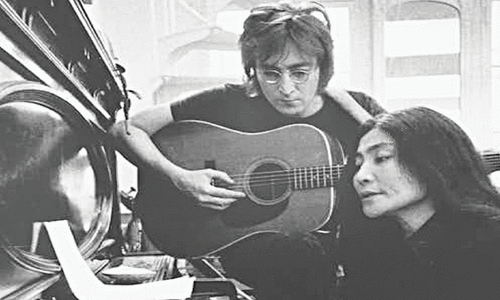
The musical dance show Pakeezah, directed by Saad Sheikh in 2022, was a thoughtfully cultivated revival of the original Bollywood film directed by Kamal Amrohi and released in 1972. The musical dance show Pakeezah was showcased again at The Colony in Lahore, from February 1-5, 2023.
Kamal Amrohi’s Pakeezah is set in Muslim Lucknow at the turn of the century. It is about a courtesan named Nargis (Meena Kumari) who wants to leave her life behind by marrying a noble Muslim man, Shahabuddin (Ashok Kumar). But his family refuses to accept her because of her profession, so she runs away to a graveyard and dies while giving birth to a girl.
The daughter, named Pakeezah — also played by Kumari — is brought back by her maternal aunt and grows up in her mother’s profession. The men want her for everything but marriage. Pakeezah falls in love too. But her profession comes in the way. The film wades into all the intimate corners of Pakeezah’s life — her stifled desires, her familial relationships and her multidimensional success as a courtesan.
The musical dance show by director Saad Sheikh is a modern adaptation of the celebrated classic film. His version delivered the story with breathtaking visual virtuosity. Sheikh undertook a unique storytelling experiment: he took up elements from films/music from across the last century — starting from Anarkali (director: Nandlal Jaswantlal, 1953) and Umrao Jaan (director: Muzaffar Ali, 1981) to Bajirao Mastani (director, Sanjay Leela Bhansali, 2015) and Coke Studio (2017) — and masterfully embedded them into the musical.
Sheikh took a wide and probing view of the Bollywood film to tie it to the past and present — with the emblematic figure of the courtesan at the centre. The beauty of his directorial decisions has led to the creation of something completely new out of the film, while maintaining its timeless and brazenly radical appeal.
Director Saad Sheikh’s new take on Kamal Amrohvi’s Pakeezah was a beautiful rendition of the original film and clearly seemed like the work of someone ready to remake theatre in Pakistan
His efforts culminated in a musical that was impressionistic, multilayered and detailed. The depth of the show has been pioneered in such a fantastic way that, throughout the musical show, it felt like it was 1972 all over again, and I was transported into the film itself. I could feel the palpable sensation of an unfolding tragedy.
While all of Sheikh’s actors embraced their roles earnestly and with great vigour, Fatima Amjed as Pakeezah stood out. Her character came alive not through dialogues but movement — she focused on a single form of classical Indian dance: kathak. She danced with mournful precision and embellished that with a piercing and unmatched expressive power.
The subtle and intimate undercurrents of passion in her dance were wrapped in layers, and it allowed the audience to unravel those layers at their own pace, and dive into the mesmerising message that was being communicated through her movement. Her dance echoed the deep, unspoken emotions that manifested in Pakeezah’s life and are at the film’s heart.
The 1972 Pakeezah is a harsh condemnation of the hypocrisy of the world that creates the courtesan only to stifle, damage and diminish her. It is a substantive exploration of the tragic predicaments of a courtesan’s life. How she tries to separate her private life from her professional life, how she tries to leave her life behind but keeps returning to it because her sense of self is deeply rooted in her identity as a tawaaif (courtesan).
In the end, Pakeezah’s father claims her as his daughter and she is able to marry. But what’s surprising is that this feel-good end does not feel all that good.
That is because the impact of what has gone before looms dramatically large over the viewer — her struggles with sacrifice; the way she desperately — yet self-consciously — tries to liberate herself from the feudal world of the kotha (brothel) but keeps coming back to it. To this end, the feet become a recurring motif in the film. Pakeezah channels all her emotions through her dance.
Sheikh worked the details of the musical dance show with searing incisiveness to remake Pakeezah’s story so that it felt more personal and relatable. He closely focused on the South Asian idiom of the courtesan and used it to reconstruct the narrative architecture of Pakeezah.
His musical — just like the film — unremittingly insisted upon the power of movement. And the tragedy in leaving — and staying. The only thing that he missed out on was the depiction of the element of ‘feet’— the poignancy in dancing with ghungroos (ankle bells) worn on one’s feet at a kotha.
This quality needed to be brought out more sharply. But other than that, it was a beautiful rendition of the original film, and clearly seemed like the work of someone ready to remake theatre in Pakistan.
Published in Dawn, ICON, February 12th, 2023














































